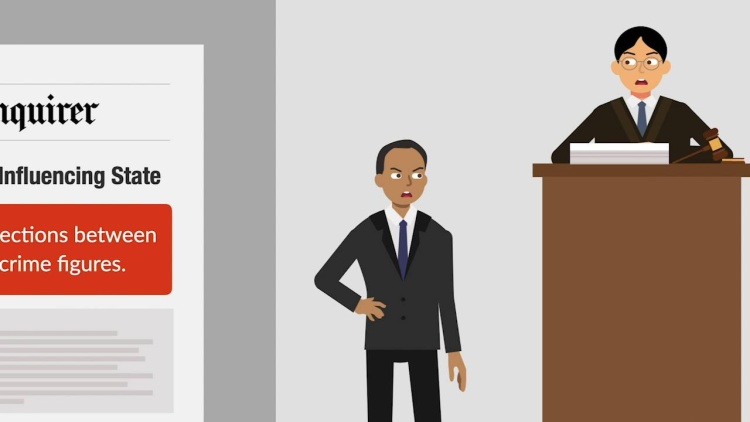Philadelphia Newspapers v. Hepps
United States Supreme Court
475 U.S. 767 (1986)
- Written by Megan Petersen, JD
Facts
Philadelphia Newspapers (newspaper) (defendant) published five stories about Hepps (plaintiff) and the corporation of which he was a principal stockholder. The stories claimed Hepps had links to organized crime and used those links to influence state administrative and legislative processes. Hepps brought suit against the newspaper for defamation. At trial, the newspaper relied on Pennsylvania’s “shield law” which provides that a media reporter is not required to disclose any sources of information in any legal proceeding or investigation. The trial judge held Hepps could not recover damages without proving falsity of the newspaper stories, but declined to answer whether an inference of falsity could be drawn from the newspaper’s reliance on the shield law. On appeal, the Pennsylvania Supreme Court held Hepps could recover only by proving fault by the newspaper, not falsity. Additionally, it held that to place the burden of showing truth on the newspaper was not unconstitutional. The case was remanded for a new trial. The United States Supreme Court noted probable jurisdiction over the case.
Rule of Law
Issue
Holding and Reasoning (O’Connor, J.)
Concurrence (Brennan, J.)
Dissent (Stevens, J.)
What to do next…
Here's why 904,000 law students have relied on our case briefs:
- Written by law professors and practitioners, not other law students. 47,100 briefs, keyed to 995 casebooks. Top-notch customer support.
- The right amount of information, includes the facts, issues, rule of law, holding and reasoning, and any concurrences and dissents.
- Access in your classes, works on your mobile and tablet. Massive library of related video lessons and high quality multiple-choice questions.
- Easy to use, uniform format for every case brief. Written in plain English, not in legalese. Our briefs summarize and simplify; they don’t just repeat the court’s language.





